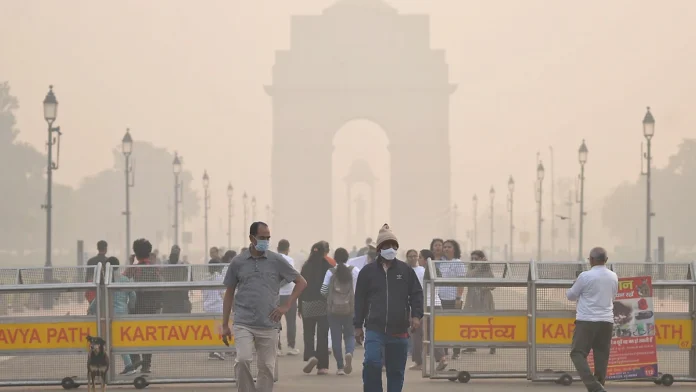With air pollution levels continuing to rise in Delhi, the Commission for Air Quality Management (CAQM) conducted a review of the enforcement and implementation measures under the Graded Response Action Plan (GRAP).
During its 19th meeting on November 27, the CAQM addressed several key issues:
- Evaluation of actions taken by implementing agencies under GRAP.
- Updates on directions issued since the last meeting on July 3.
- Revised environmental compensation (EC) charges for stubble burning.
- Monitoring of paddy residue burning.
- Enforcement actions in other sectors, including industries and construction projects.
The commission emphasized the need for strict and effective pollution control measures across sectors.
Measures to Combat Pollution
The Delhi administration has been instructed to deploy truck-mounted water sprinklers to reduce dust and particulate matter in the air. The Supreme Court has also mandated:
- Immediate establishment of checkpoints at all 113 entry points to Delhi to monitor and restrict truck entries.
- Appointment of 13 court commissioners to verify compliance at these checkpoints.
The court expressed dissatisfaction with the Delhi government’s enforcement of GRAP Stage IV measures, highlighting failures in implementing necessary actions despite previous orders.
Prohibitions Under GRAP Stage IV
- Ban on the entry of trucks into Delhi.
- Suspension of public construction projects.
- Continuation of these restrictions until pollution levels show significant improvement.
Way Forward
The CAQM urged all implementing agencies to ensure rigorous compliance with air pollution control measures, particularly under GRAP, to address the severe air quality issues in the National Capital Region.


